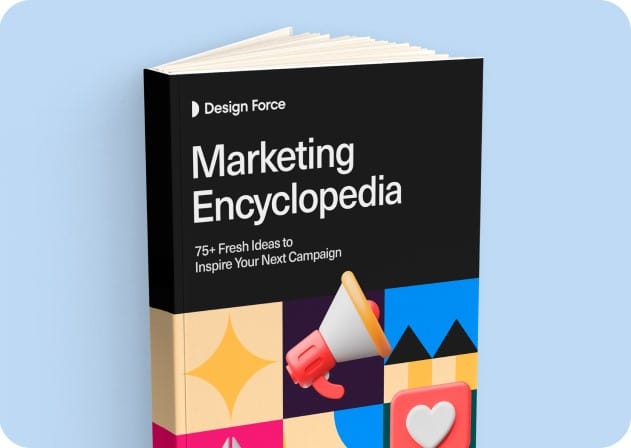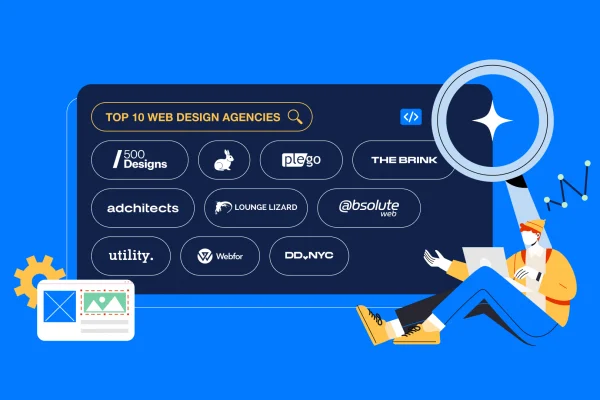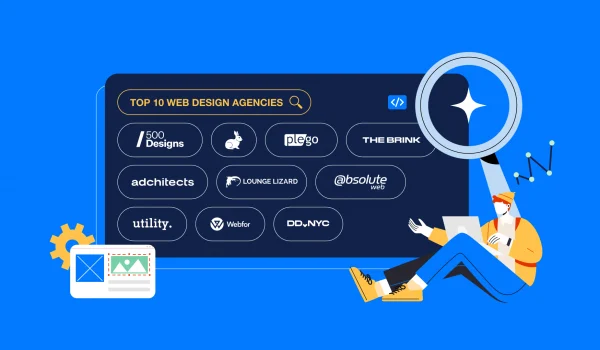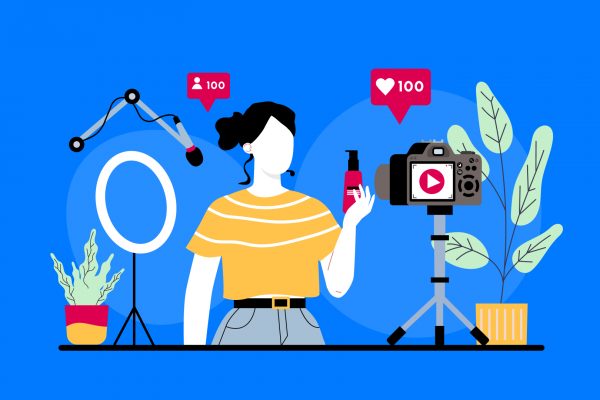We’re living in a world of data. A fast-paced digital landscape forcing marketers to explore new ways to maximize their efforts. The latest success? Performance Creative.
More than crafting ads and creative designs that are visually appealing, this approach leverages real data to guide strategic design decisions that yield measurable results.
By using data to inform decisions, marketers can assess the success of a campaign, creative, or asset in real-time, and adjust accordingly – making marketing more personalizable than ever, despite privacy restrictions in online advertising.
It’s a shift in practice, away from traditionally intuitive design to data-backed, results-oriented methods. And it’s exciting.
In this blog, we’re diving into why performance creative has the transformative impact it does, and offer tips to implement techniques into your next marketing campaign.
Understanding Performance Creative
In modern marketing, performance creative blends data-driven insights with compelling content. Its purpose is to design creative that drives measurable results while aligning with business objectives.
When you look at the data and analytics surrounding your customers, you’re given an opportunity to understand their needs and react accordingly. By using a performance creative method, you can proactively optimize the design of an advert, the creative copywriting of a campaign, or the flow of a webpage for conversion, engagement, or any other metric that supports your strategic goals.
In practice, this could look like:
- Color changes to CTA buttons to increase conversions
- Adjustments to the layout of a webpage design to improve user experience (UX)
- Options for the headline of a product launch mailer for different segments of your email list
The Evolution of Marketing Creatives
The uptake in performance creative marks a shift away from traditional marketing methods. Until recently, designing creative for marketing collateral focused on aesthetics, emotional connection, and a creative eye.
All great things, but with the digital space evolving so quickly and brands rising, falling, and competing so intensely, marketers have been forced to evolve just as fast. Now, performance-oriented creative is in favor.
By leveraging analytics to inform creative design decisions, creative campaigns become intrinsically linked to strategic goals as well as looking good. You can appeal to the emotions and the needs of the audience simultaneously. It makes design decisions more tangible, measurable, and effective.
This evolution reflects a broader trend towards accountability and efficiency in marketing, where success is quantified and continuously refined.
3 Key Components of Effective Performance Creative
For creatives to be effective, there are a few key elements to keep in mind:
Target setting
What are you aiming to achieve from your creative output? It helps to use SMART goals here (Specific, Measurable, Achievable, Relevant, and Time-Bound), to ensure the intended outcome is crystal clear.
You’ll want to make sure that each goal is strategically aligned to a business objective.
Technology integration
How will you gather your analytics and insights? There are many tools out there, from Google Analytics and Adobe Experience Cloud to in-built social media metrics and tracking inside Google Ads.
Testing
As with any marketing strategy, testing your efforts and continuously refining the output is essential for long-term success. What worked last year may not work for the next. What worked for one audience one day, may not work for the same audience the next.
Continuously assessing each creative design decision and campaign asset, with methods such as A/B testing, will give you the tangible evidence needed to determine your next move.
Implementing Performance Creative into Your Marketing Campaigns
Implementing a performance creative strategy involves a structured, step-by-step approach to ensure that every element is optimized for measurable results.
Here’s a guide to get you started:
- Collect your data
Use analytics tools to understand behaviors, paint points, demographics, etc. The more detail, the better. - Set clear goals
Define SMART goals – do you want to increase brand awareness, drive conversions, boost website traffic, or something else? - Integrate your tech
Make use of advanced tools such as AI and machine learning to analyze your data and get real-time insights. - Develop your creative
Use the data and objectives you’ve gathered, and design your assets with aesthetic, emotional and strategic appeal in mind, tailoring each to the specific audience target. - Test and optimize
Use A/B testing to compare different versions of your creative assets and use the results to continuously refine based on what resonates, and what doesn’t. - Launch and monitor
Execute your campaign and monitor its effectiveness and performance. If results start to dip, refer back to previous steps and refine them to make design decisions more impactful.
Balancing Creativity and Data: Is it Possible?
You’re excited about maximizing your marketing efforts with performance creative, but here’s the dilemma: do you risk losing creative flair?
It’s a common challenge when technological advancements step into creative spaces. How do you find a balance between maintaining brand authenticity and striving to achieve specific performance goals?
Here are some ways to navigate the balancing act:
Encourage collaboration:
Allow analytics and creative teams to come together to blend both human intuition and tangible data.
Set boundaries:
Establish guidelines to ensure marketing efforts remain aligned with your brand identity, but build in room for experimentation to allow teams to innovate while maintaining consistency.
Let the data guide you:
But don’t let it overshadow the creativity of your teams. Yes, the data is important for strategic decisions, but your brand’s core values and aesthetics must remain a priority for brand recognition and authenticity.
The Future Trends Are Exciting
With AI and machine learning platforms getting smarter by the second, we see performance creative practices revolutionizing how marketers approach content creation and optimization.
Now that we can analyze huge amounts of data at lightning speed, we’ve gained the ability to react faster than ever before. When we combine that with the intuitive and emotional talent of designers and creatives, we’re left with a hyper-personalized, transformative, and proactive approach to marketing.
Stay Competitive In A Data-Driven World With Creatives That Perform
Performance creative brings a seamless blend of creativity and data-driven precision.
As a marketer, embracing these trends will ensure you’re well-equipped to create compelling, effective campaigns that resonate deeply with your audience, without sacrificing your business objectives or creative flair.
If you’ve read the data and understand your next move, but lack the creative team to execute it effectively, we can help. At Design Force, our global team of designers work around the clock to support companies scaling their creative operations, from start-up to enterprise.
We’re excited to hear about your next campaign, so get in touch to see how we can bring your data to life and maximize your creative output.
For more information on topics like this, plus top tips on design and creative strategy, subscribe to our blog.























